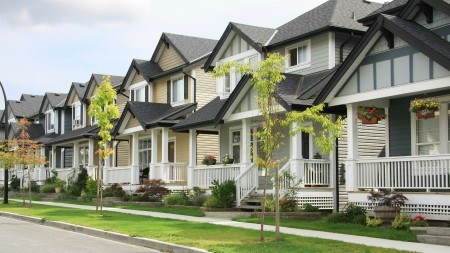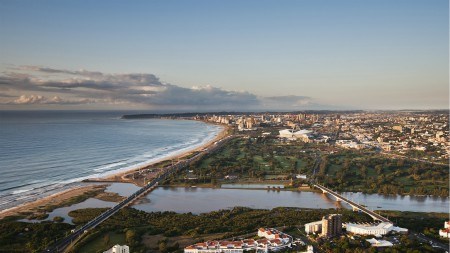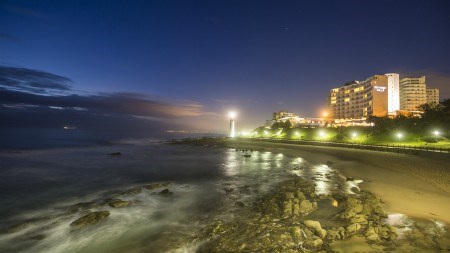Steeped in history, famous for the wines it produces, and renowned for its beauty, Cape Town ticks so many boxes on so many fronts, it’s hardly surprising that the city continues to attract buyers in every segment of the market.
There is literally something for every property palette in this area, and whether you want to invest in a luxurious property overlooking the Atlantic in Clifton, go back in time with a historical property in Stellenbosch, or get onto the property ladder by investing in a starter home in what were previously regarded as less desirable suburbs, Cape Town has it all. One of the most famous and well-known areas is the Atlantic Seaboard, home to some of the most expensive and finest real estate in the world, this section of the city has been attracting the rich and famous for years. Buyers want the view and are willing to pay a premium for the privilege. Once they have it, owners are willing to fight to keep it.
A case was brought before the Constitutional Court in early August by the Camps Bay Rate Payers Association who is attempting to stop a homeowner in Camps Bay from constructing a three-storey dwelling, which would impede the view on a neighbouring property. Fighting to the bitter end, the Association has taken the case to the highest court in the land after losing in both the High and Appeal Courts. Laurie Werner, the MD for the Western Cape region of Pam Golding Properties said views are deemed extremely important by those investing in properties in this area. “The better and more assured the view, the more the desirability and potential value of the home.” Designs by well-known architects, state-of-the-art security, quality finishes and homes with sophisticated electronics are also becoming more popular. Property in this category doesn’t come cheap. SAPTG’s statistics indicate that 11 freestanding properties with an average value of R19. 9m have been sold in Clifton in the last 12 months. The most expensive property sold for a staggering R31m and the cheapest property was snapped up for R14.5m. Sectional title properties appear to be very popular with 21 units changing hands. The most expensive sold for R25m and the lowest R2m. Neighbouring suburbs appear to have performed even better with a freestanding property in Fresnaye selling for R62,5m. The suburb has had a total of 46 freestanding home and 45 sectional title sales in the last 12 months. Middle-class buyers may want to enjoy a decent view, but it certainly isn’t on the top of their agenda.
Charl Louw, who owns the Cape Town North and Atlantic Seaboard offices of the Chas Everitt International Property Group, says that this segment of the market continues to be driven by the Ds (downscaling, debt, divorce, departure, death). He says property investors and those looking at the buy-to-let option, have disappeared for the moment. Buyers in this market are looking for value for money and Louw says if the price is right, a sale will happen quickly. He says the buyer’s perception of good value for money varies, but includes factors such as status, location, size, finishes and, in the case of a forced sale, lower prices. The average buyer in this segment of the market will typically look at a three-bedroomed, two-bathroomed home with a double garage. Other factors that drive buyer interest are the proximity to arterial routes, shopping centres and schools. SAPTG’s statistics indicate that 50 sales have taken place in central Brakenfell so far this year. The highest price paid was R1,275m and the lowest R720 000. The average price achieved was R935 185 00. Security plays a vital role in South African society and Louw says a number of suburbs that were, to some extent, previously disregarded by middle-class buyers are coming to the fore because of lower crime rates. These areas include suburbs such as Bothasig, Goedemoed and Eikenbosch. He says shopping malls sometimes play significant roles in upgrading areas. This, he says is particularly true in the areas around the newly built Zevenwacht Mall in Kuils River and the Cape Gate Mall in Kraaifontein.
Security has also been a contributing factor to the success of areas previously regarded as no-go areas for whites. Established as a coloured township by the Apartheid Government in 1966, Grassy Park and neighbouring Lotus Park Rate Payers’ Associations have worked closely with the South African Police and the results have contributed, according to Mark Brickles, the owner of Re/Max Ultra Select, to a substantial reduction in crime. In his opinion, the situation is set to improve even further as, in addition to the multi-million rand upgrade of the Grassy Park police station, there is a definite commitment from all parties to reduce crime. Brickles says the driving force behind sales is price. “When property prices spiked a few years ago, buyers were unable to afford properties in Southfield and Plumstead and many opted for Grassy Park instead, where an identical property can cost anything between 30 to 40% less.” He says that buyers from Mitchell’s Plain and Strandfontein view the suburb as a ‘trade up’ area.
“First time buyers will often sell their first home and use the profit as a deposit for a property in Grassy Park, which traditionally sells for between 30 – 40 % higher than the above-mentioned areas. As with other segments of the market, buyers are looking for value for money. Typical plot sizes in the area average 500m², with houses measuring between 120 to 200m². SAPTG statistics indicate that 55 freestanding homes and 27 sectional title properties were sold over the past year. The highest price paid for a home was R6m and the lowest was R245 000. The highest price paid for a sectional title unit was R335 000 and the lowest R55 000. Most Capetonians are passionate about their city, so passionate it appears that the area has the highest net inflow of repeat buyers in the country. This is according to John Loos, the Property Strategist from FNB, who recently cited results to this effect from the Estate Agents Survey. This passion appears to be shared by others. It was recently reported that passengers flying British Airways had identified Cape Town as their favourite destination and as such the airline will be flying to the Mother City twice a day from November this year. Whether this breathes a little life back into the foreign investment market remains to be seen. However, with the choices available to investors, Cape Town could very easily become a firm favourite on the global property map. Article courtesly of  , and is taken from their September/October 2010 issue.
, and is taken from their September/October 2010 issue.



